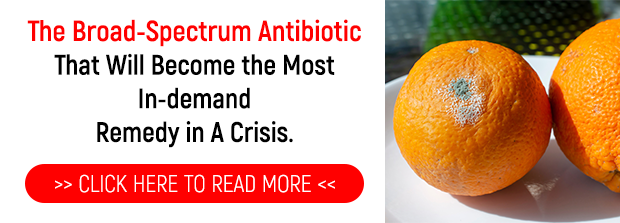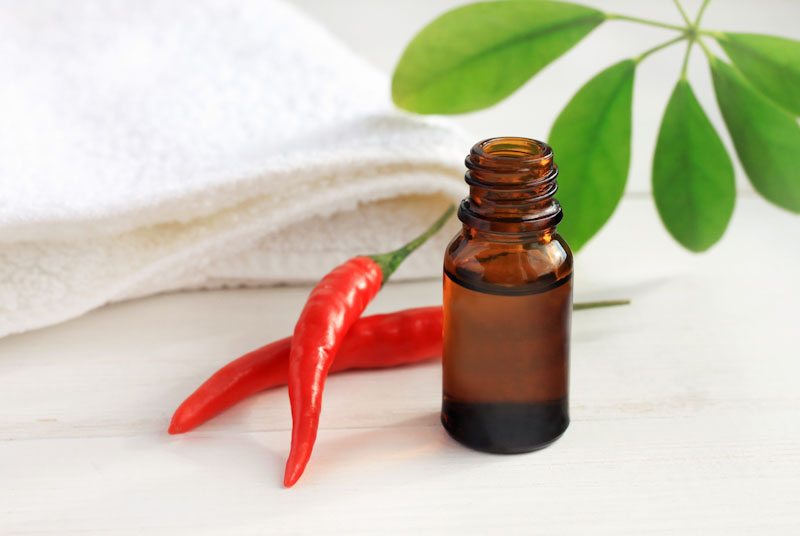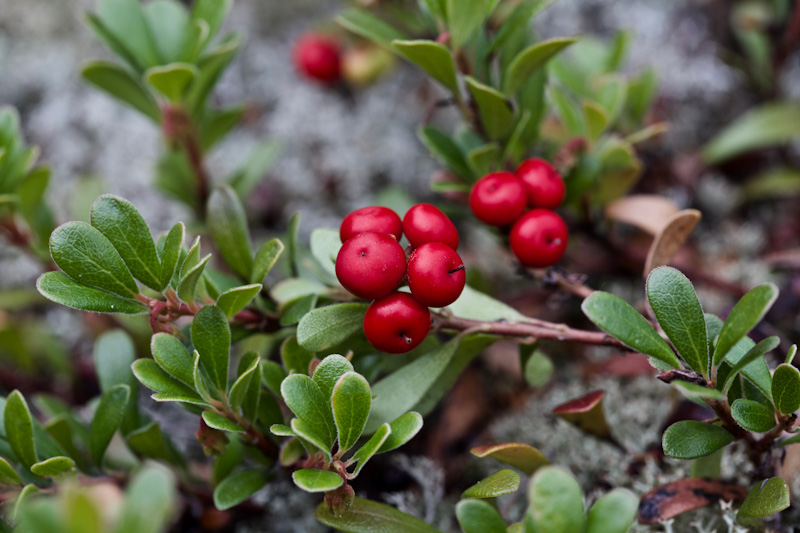Sinusitis is a bothersome condition that often strikes during seasonal changes and can make our everyday life truly miserable.
The relentless pressure, excessive mucus, and persistent throbbing pain can leave you incapacitated, making it difficult to concentrate, function, or even enjoy the sense of smell. Unfortunately, for those prone to sinus infections, sinusitis can become a recurring problem throughout the year, often triggered by allergies or the occasional common cold.
However, there’s good news for the people that get to “experience” sinusitis on a regular basis, and natural approaches offer both rapid relief and long-term support. By employing these remedies, you can break free from the grip of sinusitis and enjoy a more comfortable and symptom-free life.
Beyond just the seasonal changes, other environmental factors, such as air pollution and irritants, can exacerbate sinus problems. Additionally, lifestyle choices, like smoking or exposure to secondhand smoke, can also play a role in aggravating the condition.
To further enhance your understanding and arm you with helpful strategies, let’s explore some of the natural approaches that have proven effective in alleviating sinusitis symptoms.
Triggers and Solutions
If you frequently suffer from sinus issues, you’re well aware of the pain and pressure that can affect a specific area of your face. Your sinuses, located above your eyebrows, into your nose, and along the sides under your eyes, are hollow cavities crucial for maintaining a healthy respiratory system. They produce over a liter of mucus daily, which serves to keep the nasal passages moist, trap germs, and neutralize harmful particles, such as allergens.
When infections or allergies arise, histamine levels increase, leading to a surge in mucus production, swelling of the mucosal lining, and heightened antibody activity. This can result in thicker mucus and inflamed sinus passages, leading to a condition known as sinusitis. Symptoms of sinusitis include local discomfort and pain, runny nose, pressure, cough, congestion, fatigue, difficulty concentrating, hearing problems, and in some cases, insomnia.
Chronic or frequent sessions of sinusitis often have underlying factors contributing to their occurrence. By addressing these root causes directly, both acute and chronic sinusitis can be effectively managed. Some of these underlying factors include:
Allergens and Infections: Allergies to environmental triggers or respiratory infections can exacerbate sinus problems.
Physical irregularities: Structural issues like a deviated septum or nasal polyps can obstruct the sinuses, especially when the mucosal lining becomes inflamed.
Fungal infections: In some cases, chronic fungal infections can take hold in the sinuses, causing persistent issues.
Coexisting chronic infections: These are often a combination of fungal/yeast, and bacterial infections and will contribute to recurrent sinus problems.
By addressing these contributing factors through appropriate treatments and lifestyle changes, it is possible to find relief from sinusitis and improve overall sinus health.
Relieving Discomfort: Clear and Soothe Your Sinuses
Sinusitis can be incredibly uncomfortable due to the presence of thick mucus causing pressure and breathing difficulties, along with other unpleasant symptoms like a stuffy or runny nose. Mucus itself isn’t a problem, but rather the imbalance in mucus production. It shouldn’t be too excessive, too scarce, or too thick. Staying well-hydrated can be beneficial in this regard.
Here are some natural methods to clear and soothe your sinuses:
Steam Therapy:
It was proven that increasing moisture can provide relief for dry, congested symptoms. While a humidifier can be helpful at night in your bedroom, inhaling steam once or twice a day is actually recommended.
To do so, simply bring water to a near boil in a pot, remove it from the heat, and let it cool slightly to avoid burning your face. You can add dried or fresh aromatic herbs or a few drops of essential oil to the water, then position your head near the steam and create a makeshift tent with a towel or blanket.
Recommended herbs for steam therapy are thyme, oregano, bee balm, and peppermint. When the steam therapy session is over, you should gently blow your nose to release mucus. Alternatively, using a nasal rinse can be an even more productive method of releasing mucus.
Nasal Rinse:
To help dislodge and clear mucus, it’s recommended to gently flush your nasal passages with warm salt water. I found out that adding half a teaspoon of non-iodized salt per cup of water creates a soothing and antimicrobial saline solution.
However, keep in mind that it’s essential to use sterile or well-boiled water to avoid exposure to harmful pathogens. Herbs can be added to the rinse using well-strained tea. Berberine-rich herbs like goldenseal are recommended for nasal rinse.
Using Goldenrod (Solidago spp.): Goldenrod, when used as a fresh plant tincture made from the aerial parts just as it begins to flower, acts as a gentle antihistamine, drying excessive mucus secretions while promoting mucus movement and drainage. It also has diuretic properties, so keep this in mind if you’re taking it before bed since it will lead to increased urination.
Using Horseradish (Armoracia rusticana): For thick and dry mucus, pungent herbs like horseradish can quickly clear your sinuses, providing acute congestion relief. Horseradish is a temporary solution, so if you aim for long-term support, consider additional remedies.
Using Horehound (Marrubium vulgare): This herb is renowned for its ability to aid in expectoration during wet coughs. Additionally, horehound is effective in thinning and draining congestion in the sinuses, particularly for post-nasal drip and allergies. A fresh tincture made from the aerial parts of the plant works best for this purpose. However, I need to mention that the plant has a bitter taste, and it’s often disliked by the young and the old. A recommended dosage is 25-30 in a small glass of juice a few times a day as needed.
Histamine levels and your Immune System
Chronic sinusitis and allergies are often caused by high histamine levels and an over-reactive immune system. To deal with these issues, it’s crucial to limit exposure to allergens and triggers whenever possible.
For example, you should avoid foods that may trigger sensitivities or allergies. Another recommendation is to avoid or minimize contact with items gathering dust, like thick carpets. If you are allergic to animals, you should keep your distance, and if air pollutants are a problem in your area, using air filters is highly recommended.
In addition to these preventive measures, you can use a few natural remedies to help your immune system and alleviate the misery associated with chronic sinusitis and allergies.
Nettle (Urtica dioica): Harvesting the aerial parts of the nettle plant in spring before flowering and using it to make a tincture can be an effective way to reduce histamine levels and provide relief for allergies. The recommended dosage is 30 drops of tincture per dose in a glass of water 2-3 times a day.
Medicinal fungi – Reishi (Ganoderma lucidum) and Chaga (Inonotus obliquus): These fungi are renowned for their beneficial effects on the respiratory and immune systems. They can help reduce inflammation and provide long-term support.
Reishi and chaga have been used for centuries to strengthen one’s weak immune system while regulating an overactive one, making them beneficial for managing allergies and asthma. For consumption, it is recommended to simmer the fungi and make a tea or broth. Alternatively, you can consume them as capsules with liquid extract.
Herbs to help you fight sinus infections
Infections, whether acute or chronic, often play a significant role in the development of sinusitis. They trigger inflammation, activate the immune response, and contribute to the overproduction of mucus.
In addition to adopting a healthy diet and lifestyle, incorporating the following natural remedies into your routine may provide valuable support:
Bee balm (Monarda), Oregano (Origanum vulgare), and Thyme (Thymus vulgaris) are herbs that have been used traditionally for their potential antimicrobial and anti-inflammatory properties. Bee balm is often recommended to help fight infections, but oregano and thyme also possess similar properties and can be used interchangeably. These herbs effectively disinfect the respiratory tract.
Here are some ways you can use them:
Bee balm (Monarda): You can make bee balm tea by steeping fresh or dried bee balm leaves in hot water for several minutes. Strain the leaves before drinking. Honey can be added for additional soothing effects.
Oregano (Origanum vulgare): Oregano contains compounds like carvacrol and thymol, which have shown antimicrobial properties in studies. You can use fresh or dried oregano leaves to make oregano tea. Steep the leaves in hot water for a few minutes, then strain before consuming. Oregano can also be used in cooking to add flavor to your meals.
Thyme (Thymus vulgaris): Thyme contains thymol, which is known for its antiseptic properties and potential benefits for respiratory issues. Make thyme tea by steeping fresh or dried thyme leaves in hot water for a few minutes and then strain before drinking.
Oregon grape root (Mahonia spp.) and Barberry (Berberis spp.) contain “berberine,” an alkaloid renowned for its potent antimicrobial activity on contact, such as when used for a nasal rinse. While it does not seem to act systemically as an antimicrobial, it does help reduce excessive secretions.
You can prepare the herbal solution by making a strong tea or infusion with Oregon grape root or barberry. To do this, boil water and steep the dried root or bark of the herbs for several minutes. Strain the liquid to remove any plant material, leaving you with a herbal infusion.
Let the herbal infusion cool to a comfortable, lukewarm temperature. It should not be too hot or too cold when used as a nasal rinse.
To perform the nasal rinse, use a suitable nasal irrigation device, such as a neti pot or a bulb syringe, designed for this purpose. Follow the manufacturer’s instructions for usage.
Gently tilt your head to one side over a sink and insert the nasal rinsing device into one nostril. Slowly pour the herbal infusion into the nostril, allowing it to flow through the nasal passages and out the other nostril. Repeat on the other side.
After using the herbal infusion, it’s recommended to follow up with a saline solution nasal rinse to help flush out any remaining debris or mucus.
Yerba Mansa (Anemopsis californica) Is an herb native to the southwestern United States and Mexico. It has a long history of traditional use by Native American tribes for various medicinal purposes, including respiratory issues and sinus infections.
Yerba Mansa can be used to make an herbal infusion, similar to making tea. Here’s a basic recipe:
Add 1-2 teaspoons of dried Yerba Mansa root or leaves to a cup of boiling water. Let it steep for about 10-15 minutes to allow the beneficial compounds to release into the water. Strain the liquid to remove any plant material.
Allow the herbal infusion to cool to a comfortable, lukewarm temperature. It should not be too hot or too cold when used.
If you wish to use the plant for nasal irrigation, be sure to use a proper device, such as a neti pot or a bulb syringe, and follow the manufacturer’s instructions for usage.
Another common method of using Yerba Mansa for sinus infections is through inhalation. You can place the cooled infusion in a bowl, lean over the bowl, and inhale the steam. This may help with congestion and support the respiratory system.
Combining these antimicrobial herbs with other preventive measures, such as steams, nasal rinses with salt water, or salted antimicrobial teas, can create a multifaceted approach to fighting sinus infections and supporting overall sinus health.
Concluding
Select a few of the recommended herbs and remedies mentioned in this article that align with your specific needs. During acute episodes, it’s advisable to use all remedies more frequently, aiming for 2 to 4 times a day, to effectively address the issue.
As your symptoms begin to improve and resolve, gradually reduce the frequency of your chosen remedies, transitioning to a maintenance routine. Depending on your individual progress, you may find that after several weeks or months of being symptom-free, you no longer require any remedies to maintain your well-being. Alternatively, a daily nasal rinse might be sufficient for ongoing support in promoting sinus health.
Remember that each person’s response to the remedies may vary, so it’s essential to observe how your body responds to the treatments and adjust accordingly to achieve the best results for your sinus condition. Consulting with a healthcare professional can provide valuable guidance in customizing an effective and safe herbal regimen based on your unique needs and health status.










Johnson | September 27, 2023
|
Saline solution is the best!
June | September 27, 2023
|
This is a great list! I’ve personally tried eucalyptus and peppermint when I had sinus congestion, and they worked wonders. It’s amazing how nature provides us with remedies that can rival over-the-counter drugs. Plus, using herbs often means fewer side effects. I’d definitely recommend anyone suffering from sinus problems to give these herbs a try before resorting to pharmaceuticals.
Jason | September 27, 2023
|
While I appreciate the holistic approach and believe herbs can be beneficial, I think it’s essential to consult with a healthcare professional before diving into herbal remedies. Not every herb is safe for everyone, especially if you’re on medications or have other health conditions. I tried using oregano oil once for my sinus issues, and it irritated my mucous membranes more! Always best to be cautious.